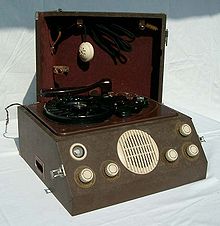Listening for History
Listening for History by Alejandra Bronfman and Christine Ehrick
In their short article, Bronfman and Ehrick discuss the importance of music in the interpretation of many Latin American cultures. They say that music has a strong connection with Latin America and the Caribbean, affecting their nations and cultures in a variety of ways. Although it’s such an important aspect of the culture, music also contributes to the fetishization of Latin America by the neocolonial gaze. Latin American culture is often stereotyped as exotic, passionate, and irrational, partially because the music reflects that.

Comedy and Aural Modernity in Argentina by Christine Ehrick
In this article, Ehrick examines an old recording of an Argentinian comedian telling a story about riding the city bus. She makes the point that actually listening to the human voice is integral to the understanding of this recording, and many others.
The human voice “is sonic bodily performance and a crucial way in which gender, race, ethnicity, class, and sexuality are constructed and perceived.” I particularly liked this quote, because it made me think of how much you can tell about a person just from hearing their voice. It would be so interesting (to me) to examine how sexuality and class especially are expressed through voice. In the earlier part of the 1900’s, the “Mid-Atlantic dialect” was considered the proper way for upper class people to speak. But today if someone spoke like that to us, it would sound strange and foreign. This evidences the temporal boundaries that constrain our understanding and use of human speech.

Ehrick touches on this difficulty, saying that although sound recordings are available from the past, there are challenges involved in reading sound from a historical perspective. For example, context is incredible important, especially with humor. Laughter is universal (to humans) but what makes us laugh is culturally and temporally specific. For example, jokes from the 1950’s would most likely not be as funny today, and jokes from Texas might not be received so well in Saudi Arabia.
Another point I found really interesting was that when we listen to historical recordings, we are “listening to sounds not meant for our ears.” Despite this, sound delivers a historical understanding to us that no other technology could.

Leave a Reply